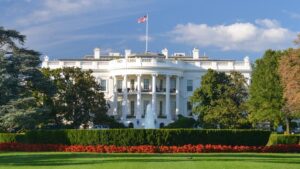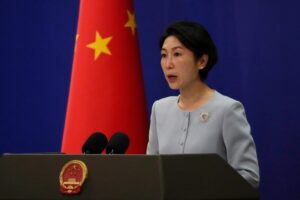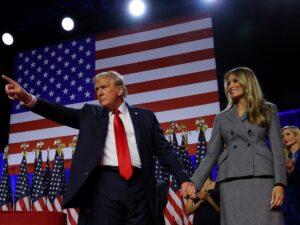Presidential candidates have to follow many of the same rules other federal candidates do when it comes to campaign funds, but they do have a few unique exceptions.
Former President Donald Trump and Vice President Kamala Harris raised hundreds of millions of dollars in their quests to become the next president of the United States.
We previously VERIFIED how congressional candidates can use unspent campaign funds. But what happens to any of the presidential candidates’ leftover campaign funds? That’s what many people online want to know, Google Trends data show.
THE QUESTION
Can presidential candidates do whatever they want with leftover campaign funds?
THE SOURCES
THE ANSWER
No, presidential candidates cannot do whatever they want with leftover campaign funds.
WHAT WE FOUND
Presidential candidates must follow many of the same rules as other candidates for federal office when it comes to their leftover funds, although there are a few rules unique to presidential candidates and primaries.
These rules, which are overseen by the Federal Election Commission (FEC), give candidates for president a lot of freedom over how they use their leftover campaign funds. The one thing all candidates for federal office – including former presidential candidates – cannot do with leftover campaign funds is use them for personal use.
That means the leftover funds cannot simply be put into the candidate’s bank account or used to pay their mortgage. There are some exceptions, like legal expenses, that are considered gray areas by the FEC and evaluated on a case-by-case basis.
According to the FEC, one way a former presidential candidate can spend their leftover funds is by “winding down” or terminating their campaign. This includes paying any outstanding bills or debts, or costs required to close up their offices.
Former candidates can also issue refunds to individual donors, donate the money to charity or pass as much of it as they want to national, state or local political party committees.
They can donate some of those funds to the committee of another federal candidate, however, such donations are limited to $2,000 per election to any one candidate.
Similarly, a former candidate can donate leftover funds to political action committees (PACs), but only up to $5,000 a year to any one PAC.
Former candidates can also convert their official campaign committee into its own political action committee, which can give them more flexibility with how to use the money.
They can also transfer leftover campaign funds from their campaign for one federal office to another. For example, if a candidate is running for president and Congress in the same election cycle, they can transfer the leftover funds from their presidential campaign to their campaign fund for Congress once they’ve dropped out of the race for president.
The candidate can do something similar if they decide to run for Congress or president in the future..
Finally, candidates for federal office, including presidential candidates, can let their leftover funds just sit around. The Center for Public Integrity, a nonprofit investigative news organization, reported in 2014 that several former members of Congress still had millions of dollars in their campaign funds, even though some of those candidates hadn’t run for office in years. The reasoning for keeping all of this leftover money, the former congresspeople said, was in case they decided to run for federal office again in the future.










More Stories
Did Donald Trump win the popular vote?
Snow continues to fall Wednesday morning across Denver metro
Asia braces for disruption to alliances, trade after Trump’s victory